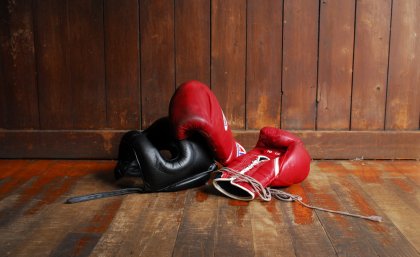
Have you bonged your noggin, mashed your melon or copped one on the kisser?
University of Queensland School of Human Movement and Nutrition Sciences researchers, including Vince Kelly, are looking for combat sport athletes to assist with a concussion study.
“We already have confirmed participants from professional rugby league, soccer and horse racing, but we would like more sports to be included in the study such as boxing and mixed martial arts,” Mr Kelly said.
“The study will utilise a MRI (magnetic image resonance) sequence in a different way than usual and may address some subjective elements of concussion assessment.
“The subjectivity of assessing professional players has been identified internationally as a critical concern for both the athletes and the sporting organisations they are affiliated with.
“A history of mild traumatic head injury has been identified as a risk factor for age-associated neurodegenerative disease.”
When a person suffers a mild traumatic head injury – the most frequent concussion seen in sports environments – common medical scans can often appear normal and without evidence of trauma.
However use of another imaging technology, diffusion tensor imaging (DTI), may be able to identify that which has been otherwise undetectable.
DTI works by tracking the flow of water molecules around the brain and pinpointing where disturbances of the brain might have altered the molecules’ diffusion.
“The aim is to enhance management of athletes’ health and safety,” Mr Kelly said.
“Objective evidence of trauma will protect the athlete and the organisation by providing greater information about when it may be safe to return to participation.
“We’ll be recording a baseline measure for the individuals – telling us how their brain functions normally – which can be used to ascertain the impact of concussion if it occurs.
“It will be of use to them in the short-term for their sports performance, and in the longer-term in respect to healthy ageing.”
Commitment from participants will include a pre-season and post-season scan (15 minutes per scan).
Athletes who experience a concussion during the season will also have extra scans within 72 hours of the concussive event and then six weeks after the event.
Interested participants can use the contact details below to register.
Media: Mr Vince Kelly, v.kelly2@uq.edu.au; UQ Communications Robert Burgin, r.burgin@uq.edu.au, +617 3346 3035, +61 0448 410 364.
.jpg)









